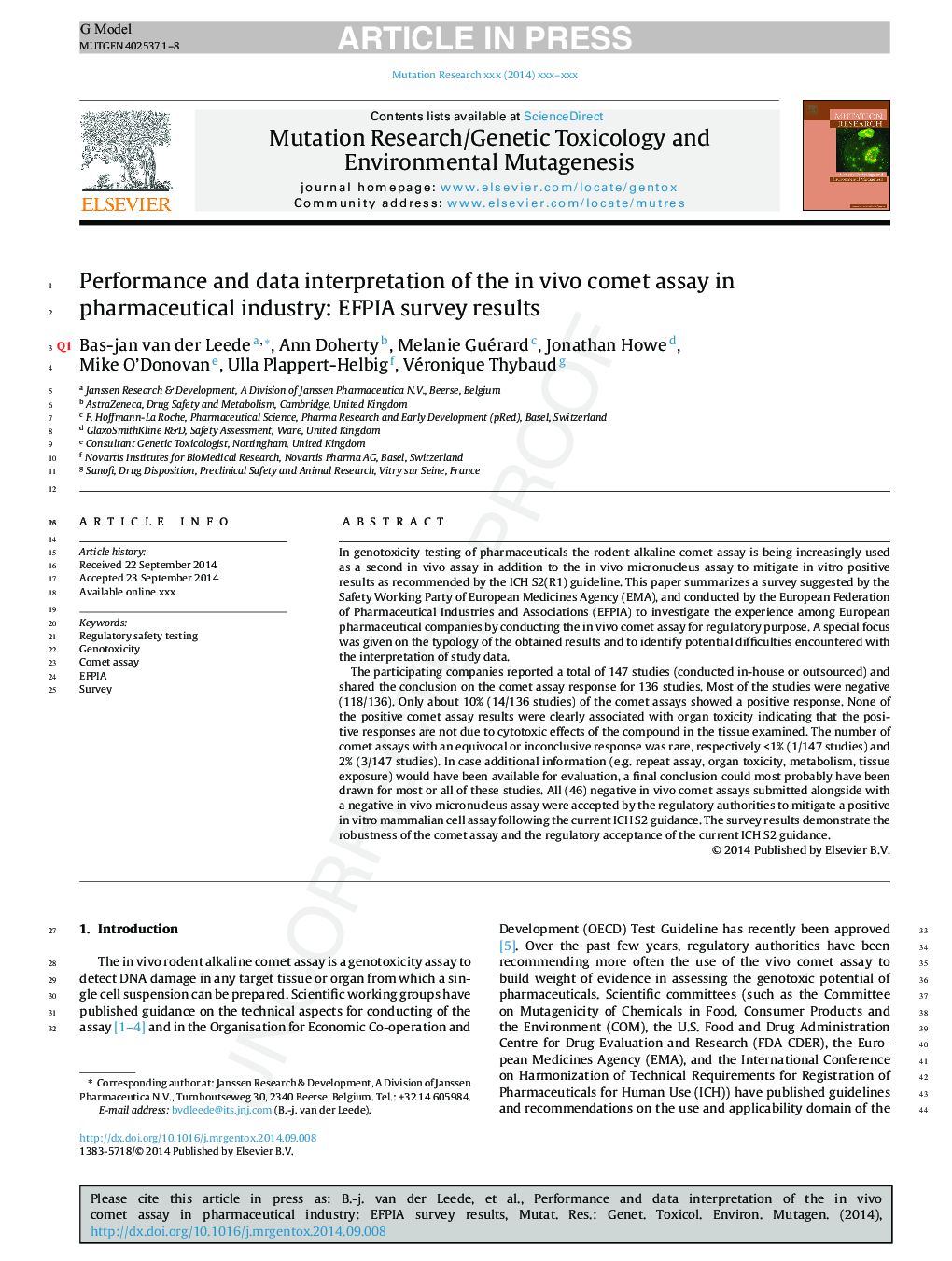| Article ID | Journal | Published Year | Pages | File Type |
|---|---|---|---|---|
| 8456454 | Mutation Research/Genetic Toxicology and Environmental Mutagenesis | 2014 | 8 Pages |
Abstract
The participating companies reported a total of 147 studies (conducted in-house or outsourced) and shared the conclusion on the comet assay response for 136 studies. Most of the studies were negative (118/136). Only about 10% (14/136 studies) of the comet assays showed a positive response. None of the positive comet assay results were clearly associated with organ toxicity indicating that the positive responses are not due to cytotoxic effects of the compound in the tissue examined. The number of comet assays with an equivocal or inconclusive response was rare, respectively <1% (1/147 studies) and 2% (3/147 studies). In case additional information (e.g. repeat assay, organ toxicity, metabolism, tissue exposure) would have been available for evaluation, a final conclusion could most probably have been drawn for most or all of these studies. All (46) negative in vivo comet assays submitted alongside with a negative in vivo micronucleus assay were accepted by the regulatory authorities to mitigate a positive in vitro mammalian cell assay following the current ICH S2 guidance. The survey results demonstrate the robustness of the comet assay and the regulatory acceptance of the current ICH S2 guidance.
Keywords
Related Topics
Life Sciences
Biochemistry, Genetics and Molecular Biology
Cancer Research
Authors
Bas-jan van der Leede, Ann Doherty, Melanie Guérard, Jonathan Howe, Mike O'Donovan, Ulla Plappert-Helbig, Véronique Thybaud,
